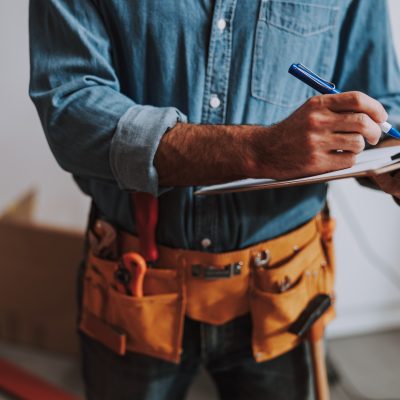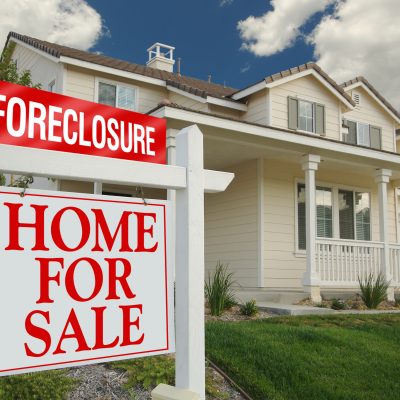Home Inspection Checklist: What Does an Inspector Look for in Foreclosed Home?
One reason that many people shy away from foreclosed homes is that they don’t like the risk associate with homes that are sold as-is. This is understandable given that during an auction none inspect the home in foreclosure. In fact, in some cases, the buyer never even sees the home they are bidding on. However, an auction is not the only way to find a foreclosed home. When you buy bank-owned homes you are able to hire a home inspector which changes the game for those who want a good deal with a minimal amount of risk.
Increase in Foreclosed Homes
While the government moratorium on bank foreclosures due to COVID-19 did essentially stop foreclosures in their tracks, in recent months they are starting to rise again which means that now is a good time to find a short-sale and/bank-owned homes on the mark for those who are thinking about a new type of investment opportunity. In addition, those who are struggling to find an affordable home due to the national housing shortage may find that the search for foreclosure homes leads to better results.
Your Responsibility in a Home Inspection
However, finding a short-sale or bank-owned home is only the first step in the buying process. Before your sale can close you will need to hire a home inspector and have the home thoroughly inspected for problems. For many, this can be a very nerve-wracking time as it can reveal whether or not the home is truly a good risk to take on. While you are not required to be present at the home inspection, it is a very good idea to clear your schedule and attend.
Most inspectors have no problem with the buyer attending the inspection, and since the buyer typically foots the cost it is your right to be there. Not only will this give you a second chance to tour your potentially new home, but it lets you see firsthand the problems that the inspector is noting in his report. Most are happy to point out issues in a report and let you know if they are trivial or important which can be extremely helpful if you are not that knowledgeable about home repair.
What Happens When They Inspect Foreclosed Home?
During a home inspection, the home inspector will take a thorough look around every level of a house. This will include looking at the foundation, roof, electrical system, and more. In general, you should schedule two to four hours for the home inspection, but if the house is the larger size then it may take longer. The home inspector is very tedious and will not skip over areas or rooms due to time constraints.
After the home inspection is complete they will issue you a written report within three to four days in most cases. Most reports are now electronically sent to consumers, but if you prefer a written copy make sure you clarify this before you hire a home inspector.
What Areas Do Home Inspectors Look at in Foreclosed Home?
If you need to inspect the home in foreclosure, it is only reasonable to be nervous about the condition of the home. Bank-owned homes are forcibly repossessed by the bank not carefully maintained by the bank. With that in mind, during your search for foreclosure homes, your end goal should be a home that can be inspected if you are not willing to make repairs on your own.
However, following a home inspection, you should feel confident in your decision to proceed because the inspector will be extremely thorough. Most home inspection companies offer their own guarantees along with service. For example, some may say that if you experience an issue they missed within one year of closing they will pay for the repair. This accountability assures that they will document every single issue. The inspector will carefully review:
- Roof
- Heating system
- HVAC system
- Walls
- Plumbing system
- Foundation
- Basement
- Electrical System
- Ceilings
- Attic
- Roof
- Windows and doors
Should You Worry About a Long Report After a Home Inspection?
Potential buyers often panic when they see a long report following a home inspection, but in reality, this is a good sign. It is proof that your inspector did his or her job as expected. If a foreclosed home is older than a decade there will be small issues that you would never think twice about, but it is the inspector’s job to list everything they see whether or not it is concerning. For example, if they notice that an electrical outlet plate is loose they will list it in the report, even though one turn of a screwdriver is all it takes to fix the problem.
A typical home inspection report will include plenty of minor issues that you can easily ignore. Cracks in the sidewalk? Not likely to be a dealbreaker. An electrical box that is over five decades old? That may be a point of contention.
Following the home inspection as a buyer, you have the option to give the seller a list of issues to fix. The seller, or in this case bank, then has the option to make the repairs or lower the asking price to account for the cost of repairs. Keep in mind that if you are buying a home as a short sale the seller is limited on time and likely funds, so they may not be willing to accommodate the repairs. Most banks will also not work with the buyer. At this point, you will need to decide if required repairs will offset the affordability of buying a home in foreclosure.
Role of an Inspection in a Foreclosure
This is the one place where the purpose of a home inspection slightly deviates from the norm when you find a foreclosed home. The purpose of the home inspection during a foreclosure purchase is not to ask for improvements, but rather to educate the buyer on potential issues so he or she can determine if they still want the home. The home inspection lowers the risk associated with buying a foreclosed home in lieu of acting as a negotiation point in the escrow process. It is still extremely beneficial, but should not be heavily depended on to improve the value of a home.





